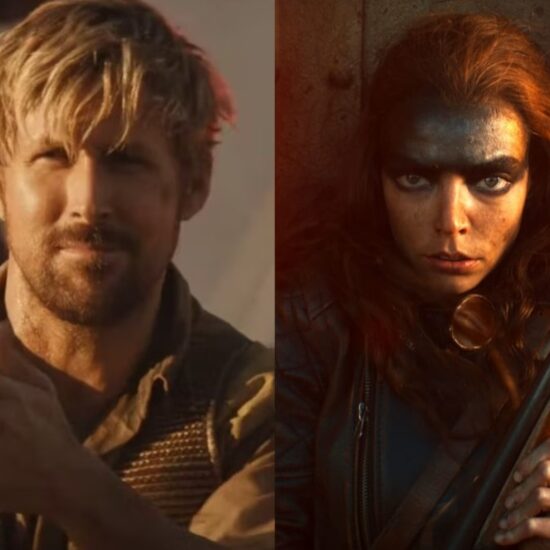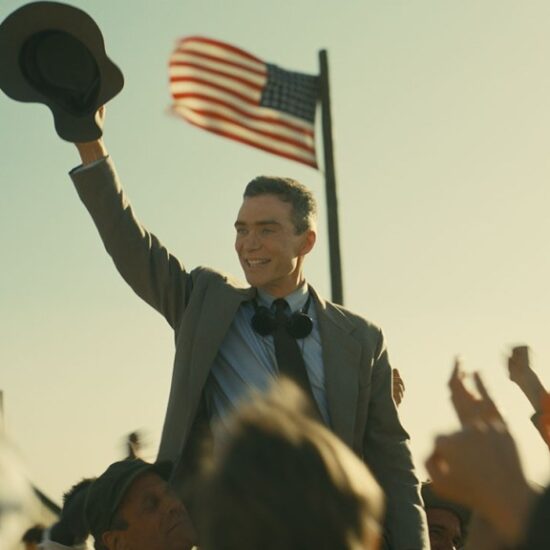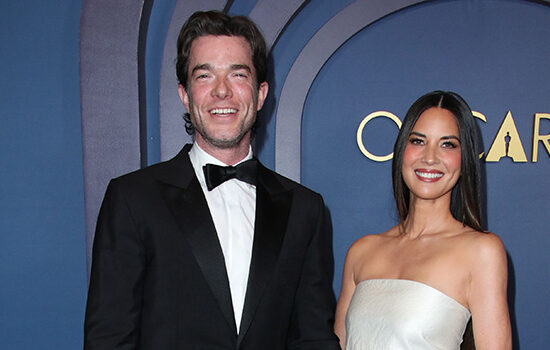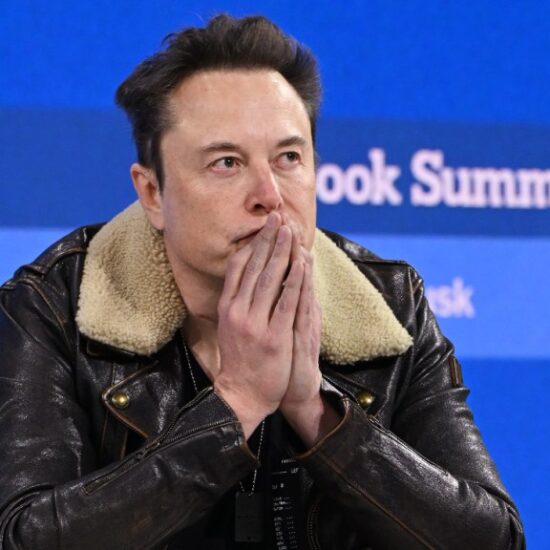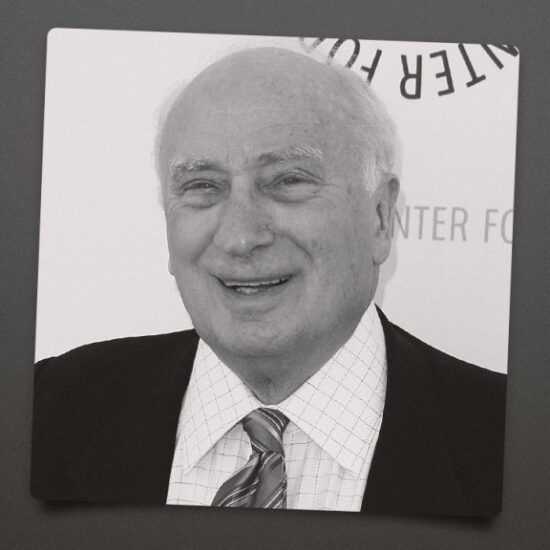
Before superhero movies were the only kind of movies, they almost always had a cute little gag where someone would acknowledge that something—typically something pulled straight from the comic book source material—was silly, whether it was by directly breaking the fourth wall or with a winky meta gag. That way the audience wouldn’t feel embarrassed about watching a superhero movie, because the movie had announced that it was okay to think it was embarrassing. The most iconic example is in the first X-Men movie, when Wolverine objects to everyone wearing matching leather costumes and Cyclops quips: “What would you prefer? Yellow spandex?” (a nod to Wolverine’s costume in the comics).
Modern superhero movies no longer waste time with that, with Marvel Studios’ latest release—The Marvels—basically being the ultimate expression of how Hollywood’s feelings toward superheroes have evolved. It’s a movie where everyone unabashedly wears a superhero suit, where everyone’s backstory is explained in a different thing, and where ill-defined superpowers that involve energy blasts and energy absorption are just accepted as cool. There’s no point in undercutting any of that, because nobody’s going to the theater to see The Marvels if they’re not already on board.
It’s been a long time since Hollywood has been embarrassed by superheroes. The movies make money. They’re popular. Marvel can make a movie called The Marvels and people generally understand what that means. However, Hollywood is still significantly ashamed of the actual source material—comic books—that these superheroes come from.
The Marvels is also an example of this, though not the most egregious one. After all, its three eponymous Marvels have different origins than their comics counterparts. Brie Larson’s Captain Marvel is better served by her movie origin, which isn’t dependent on a man, like her comics one. But fans of the comics version of Monica Rambeau might be disappointed that Teyonah Parris’ version doesn’t get any credit for being the first woman to use the Captain Marvel name or for having a legacy all her own. Then there’s Ms. Marvel, the one and only breakout star of Marvel Comics’ push to make the Inhumans matter at all, but Iman Vellani’s live-action version is implied to be a mutant in the MCU—at least partially because Marvel Studios wisely avoided the Inhumans, save for one failed TV project—and her powers were changed for her TV show.
More obvious examples can be rattled off easily: The Infinity Gauntlet story in the comics is completely different from how it plays out in Infinity War (which was the name of another completely different story) and Endgame. The bones of Civil War are there in the movie, but the comic had a whole thing about picking sides and competing philosophies about superheroism that all had their defenders (even if Captain America was obviously right in both of them). Or take any of the MCU Spider-Man movies, which have all been epic crossovers where Spidey meets another hero and faces increasingly gigantic stakes, as opposed to 90 percent of Spidey comics, where he’s just trying to juggle his Daily Bugle gig and his relationship with Mary Jane, and then maybe the Rhino will trash a bank if you’re lucky.
It’s the same with the Flash movie across the aisle, which was heavily indebted to the Flashpoint comics event, in a sense, even though that’s just one Flash story in nearly seven decades of Flash history and this was the very first movie all about the Flash. Like Spider-Man, most comics about the Flash tend to be about him battling one of the many classic Flash villains like Mirror Master or Weather Wizard, not Superman’s General Zod, but a regular story about the Flash—any story from that long history—simply isn’t big enough for Hollywood to justify the huge financial demands put on a mega-budget superhero movie.
In the past, that kind of pressure has even killed what should be relatively easy superhero projects. Joss Whedon was attached to Batgirl before the recent doomed version, but one of the reasons his version fell apart was (supposedly) that he couldn’t “crack the code” of what a Batgirl movie should be about—as if easy jumping-on-point comics like Batgirl: Year One and Batgirl Of Burnside don’t exist, though the project would’ve been more cursed than before if it had ended up being a collaboration between Whedon and Burnside co-writer Cameron Stewart.
Less… problematic is Disney+’s Daredevil: Born Again, which recently suspended production as part of a full creative overhaul after Marvel Studios boss Kevin Feige was unhappy with what writers Chris Ord and Matt Corman had come up with (including the much-derided decision to keep Charlie Cox’s Matt Murdock out of the Daredevil costume until the fourth episode). They were apparently making a semi-serious legal procedural that just happened to be about Daredevil, which could’ve been fun if not for the fact that there are tons of great jumping-on-point comics that Marvel could easily base a whole Daredevil series around without having to come up with anything new/bad.
Like, for example, Frank Miller’s acclaimed “Born Again” run, which the show was named after. That’s largely what Ben Affleck’s Daredevil movie followed, and Netflix’s original Daredevil show was mostly Frank Miller-inspired stuff, but there are so many more than that. Mark Waid’s Daredevil run (one of the best in superhero history) was a fresh start of sorts for the character, dropping some of the doom and gloom in favor of more optimistic jokey beats (masking some real gut-punches) that would fit perfectly on Disney+.
Or, if Disney wanted more of a legal procedural, Brian Michael Bendis’ Daredevil comics had a story arc where his secret identity was exposed and published in a newspaper, so he took the owner of that paper to court even though it was true. That would be an interestingly dark storyline for Marvel Studios to tackle, since it really highlights the inherent hypocrisy of Daredevil—a man who fights alongside the justice system during the day as a lawyer but circumvents it at night as a vigilante.
That gets at the real issue here: Hollywood is in a superhero slump, across Marvel and its big-screen competitors, but it’s at least partially self-inflicted. There are decades of well-received superhero stories that Hollywood could be pulling from but is choosing not to. Sometimes that’s a good idea, like in Captain Marvel, but a lot of these comic storylines have done the heavy lifting and solved these characters in a way that movies don’t need to do.
The previous Daredevil: Born Again administration shouldn’t have needed to waste time figuring out the character and deciding how to tell a Daredevil story, because it’s been done countless times before with countless creative teams who just happen to be working in a different medium that these studios—consciously or not—look down on.
Joss Whedon failing to make a Batgirl movie is not a Batgirl problem, it’s a Joss Whedon problem. Disney struggling to make a Daredevil TV show has nothing to do with it being hard to tell a Daredevil story—because it shouldn’t be that hard. It’s either because Disney is dumb and can’t figure it out, or because they’re more than happy to exploit comic books right up until the point where it requires actually reading them and acknowledging that there are good things about them beyond the easy IP they provide.








